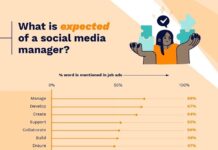Yesterday Twitter wrote an unsigned blog post. It said that in order to gain access to large markets, it will henceforth cooperate with governments to censor user content within those countries.
Alas, Twitter did not say it so succinctly as that. They started out with a bit of philosophical butter to salve the corporate conscience…
“As we continue to grow internationally, we will enter countries that have different ideas about the contours of freedom of expression. Some differ so much from our ideas that we will not be able to exist there. Others are similar but, for historical or cultural reasons, restrict certain types of content, such as France or Germany, which ban pro-Nazi content.”
This breathtaking piece of Bay Area doublespeak attempts to equivocate between the free and the not free. We’re all “free,” says Twitter, only the “contours” are different. Americans can be neo-Nazis. The French and Germans cannot be neo-Nazis, even though they are generally considered to belong to free societies. Does it not then follow that China can also be considered a free society, only with slightly different “contours,” arising naturally from the bumps and bulges of culture and history?
This is nonsense. Freedom of expression, in any meaningful, practical sense, is a Boolean term. Either it exists or it doesn’t. In the United States, France and Germany it exists; in China it doesn’t.
In the next paragraph Twitter gets more specific: “Starting today, we give ourselves the ability to reactively withhold content from users in a specific country — while keeping it available in the rest of the world.”
Note the weird new pusillanimous adverb “reactively.” We’re going to cooperate with the authorities, but only if they tell us to. I suppose this nice distinction between self-censorship and censorship, between “reactively” and “proactively,” matters to Twitter. To the rest of the world it probably doesn’t. Tweets withheld from “a specific country” — the place they actually matter — won’t affect real outcomes.
This is not an easy issue. A censored version of Twitter may do more good than no Twitter at all. As a privately held company Twitter has every right to operate where and how it wants.
But Twitter and services like it have been developed by free people, in a society where freedom of expression is a core principle. Extending Twitter to societies that don’t share that principle means compromising both the principle and the service.
Twitter should be clear about the compromise it’s making. Trying to couch it in politically correct terms does not make the issue go away, and it does nothing to help them earn the trust and respect of the users on which their business relies.
Background on this issue (we will continue to update this list as we find more articles with different points of view):
- Tweets Still Must Flow (Twitter Blog)
- Country Withheld Content (Twitter Support Page)
- Chillingeffects.org/twitter (Cease and Desist Notices: Sent to Twitter)
- Worried About Possible Restrictions On Twitter? Here’s How To Get Around Them (The Next Web)
- Twitter to selectively ‘censor’ tweets by country (BBC News, with comments from Reporters Without Borders)
- Twitter to Censor Content in Certain Countries (Mashable points out that the announcement comes one day after Twitter announces it will be available “available in Arabic, Farsi, Hebrew and Urdu — languages … spoken in many countries associated with strict government media restrictions.”)
- Thoughts on Twitter’s Latest Move (Jillian York, Director of International Freedom of Expression at the Electronic Frontier Foundation says “this does not, in my view, represent a sea change in Twitter’s policies. Twitter has previously taken down content–for DMCA requests, at least–and will no doubt continue to face requests in the future. I believe that the company is doing its best in a tough situation… .”)
- Relax: Twitter’s New Censorship Policy Is Actually Good for Activists (Mashable argues that the new policy will actually allow for less censorship, not more.)


